Right outside the small town of Muadzam Shah, Pahang sits an Orang Asli village, Kg. Bukit Biru. Back in 2020, the village made national headlines when an article published by the Malay Mail brought to light the poor living conditions of the villagers. Not only did the village lack access to clean water and electricity, many of the villagers also depended on a nearby landfill to earn money.
Living in temporary makeshift huts, many of the villagers would scavenge through piles of trash looking for recyclables to sell. As hunter-gatherers by nature, many Orang Asli families lived by gathering from the forest. However, as the forest surrounding Kg. Bukit Biru had significantly deteriorated due to deforestation for palm oil and logging, many of the villagers had no other option but to depend on the landfill to earn enough money to put food on the table.
I used to collect rotan and bertam. The bamboo has also lessened, (so) there is nothing for me to forage anymore. Now I have to resort to collecting plastic bottles, metal tins and scrap metal from the landfill. I do that just to get some money to buy food.
Pak Cik Meter, Kg. Bukit Biru

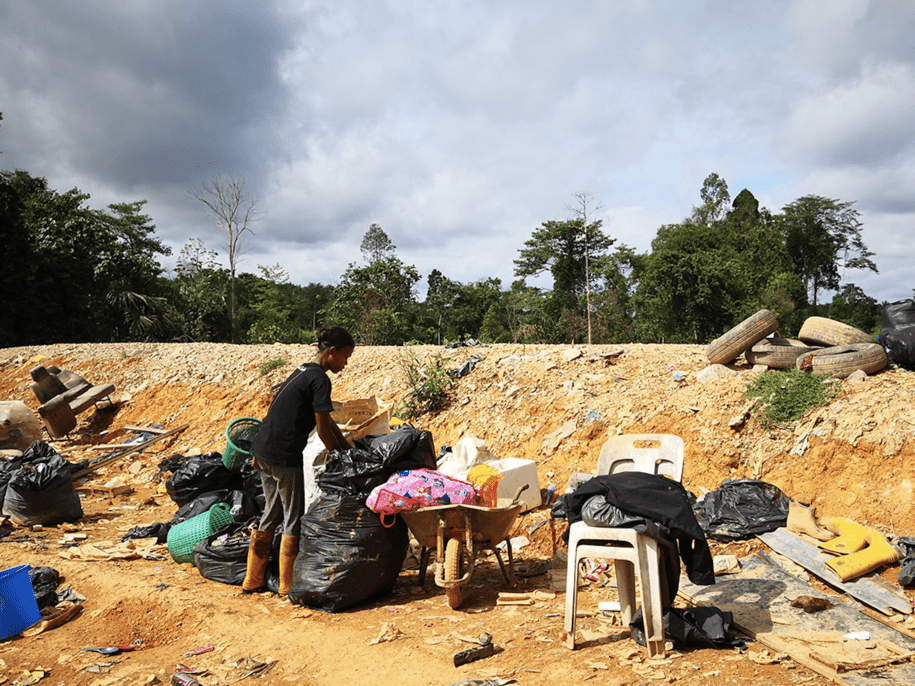
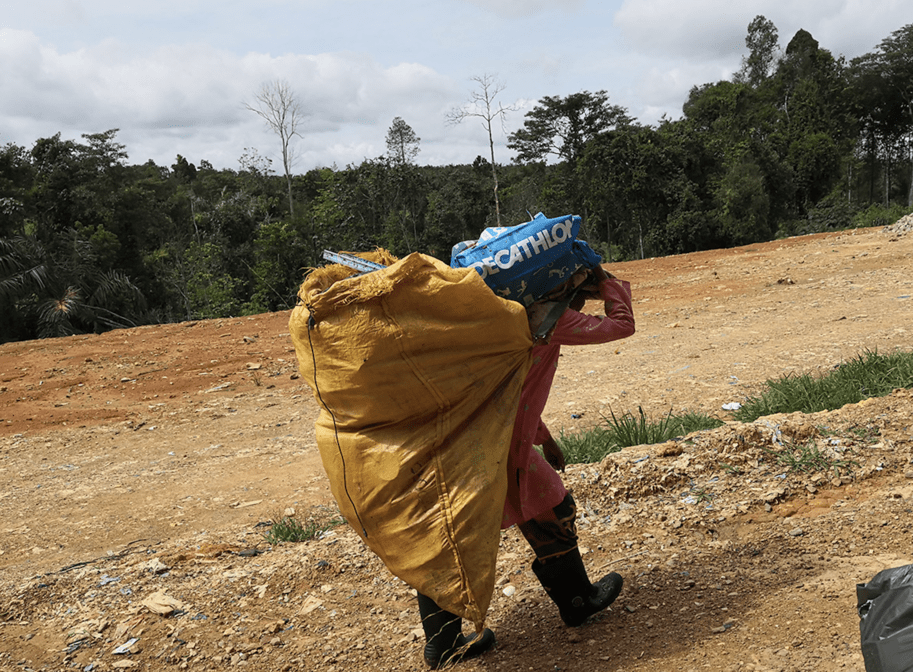

Although we recognise the income opportunities the landfill provides, “landfill scavenging reflects a deeper issue that affects the Orang Asli,” shares Dr. Teh, the CEO of Global Peace Foundation Malaysia. Not only does landfill scavenging emphasise the loss of the Orang Asli’s traditional livelihood as stewards of the land, it also impacts the dignity, health and safety of the villagers who have to sort through rotting food and metal scraps just to earn a living.
From Scavenging to Farming
Global Peace has worked with Kg. Bukit Biru since 2019 and have met many of the villagers who worked at the landfill. Soon after the village made headlines in 2020, the villagers were forbidden from entering the landfill. Unable to forage at the forest or scavenge at the landfill, we knew we had to work with the villagers to find alternative ways to diversify their livelihood.
In 2022, we kickstarted a Syntropic Agroforestry project with the Orang Asli farmers in Kg. Bukit Biru. This food farming project aims to address the challenge of food insecurity and malnutrition whilst also creating additional opportunities for income generation for the villagers. It has been one year since we started the food farming project and the village now boasts flourishing farms that provide the villagers with a wide variety of vegetables and fruits such as lemongrass, eggplant, banana, corn and more!

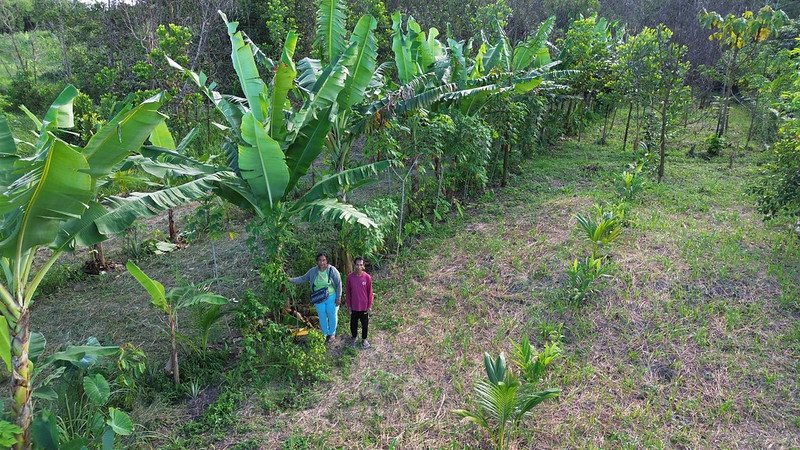
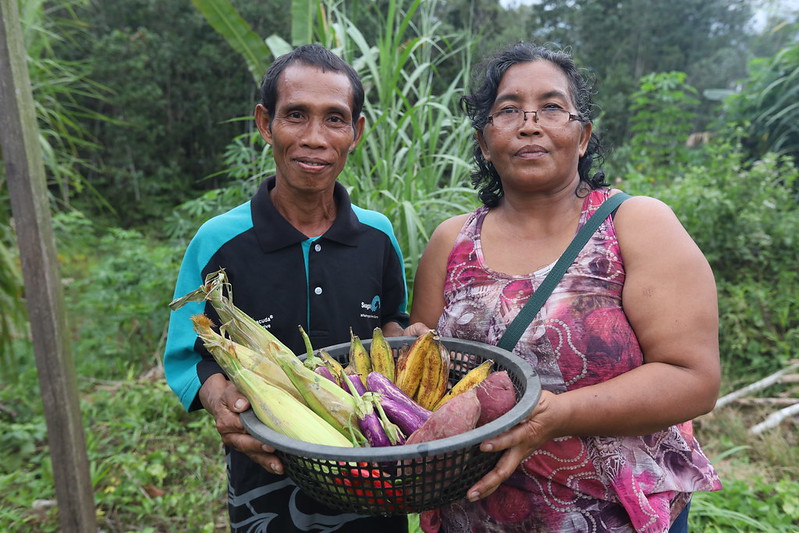
“Before this, our farm used to be very small. But now that we have incorporated Syntropic farming, our farm is flourishing. I am so proud and feel so at ease now because my farm is healthy. We have even harvested our produce.”
Pak Jamidah, Kg. Bukit Biru
The goal of Syntropic Agroforestry is to create a self-sustaining ecosystem that benefits not only the farmers but also the environment. In the long term, we hope that these farms will become self-sufficient, providing farmers with nutrient-dense and organic food whilst also regrowing the lost forest of the Orang Asli.
Reaping the Fruits of their Labour
This Ramadan, we were able to successfully connect the villagers with a Malaysian supermarket chain to sell their organic lemongrass. In total, the villagers sold an estimated 300 kilograms of lemongrass! What a feat!
To help prepare the lemongrass for distribution and selling, the villagers of Kg. Bukit Biru gathered together at the Rumah Adat to clean, pack and tag the lemongrass into baskets. This was such an exciting and inspirational sight to see, as the journey to this achievement was not easy. Although the villagers faced various difficulties in farming and in selling their produce, they did not give up and continued to work hard in their farms.
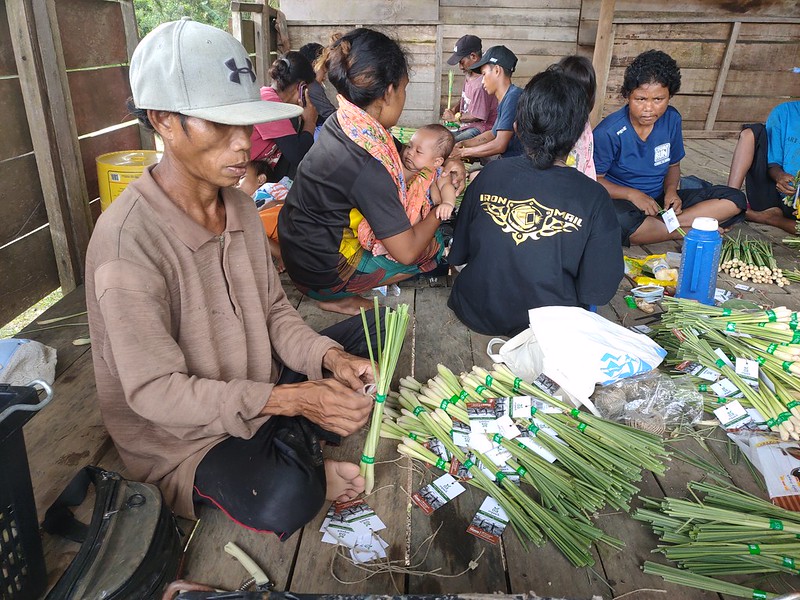
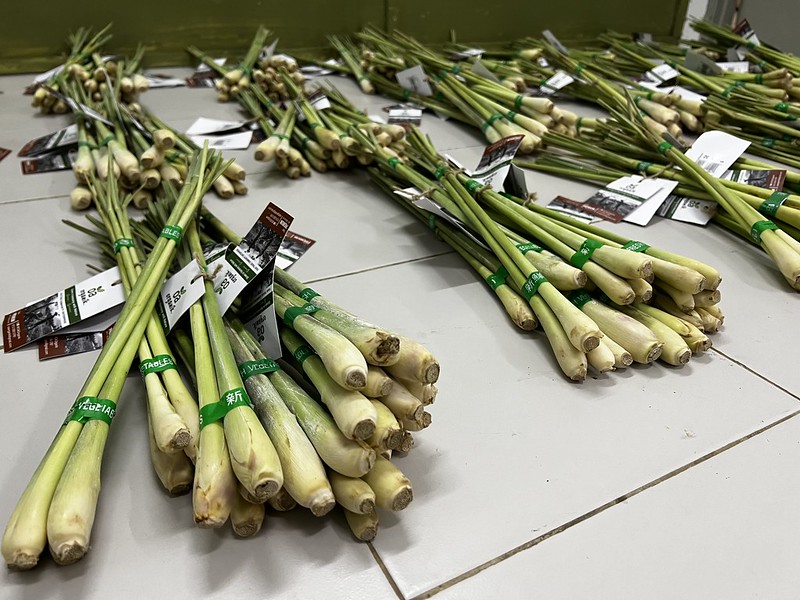
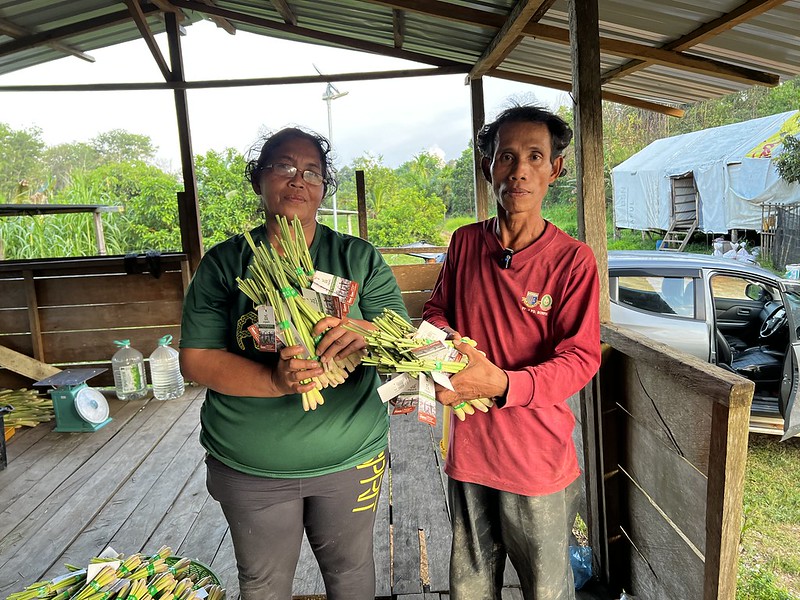
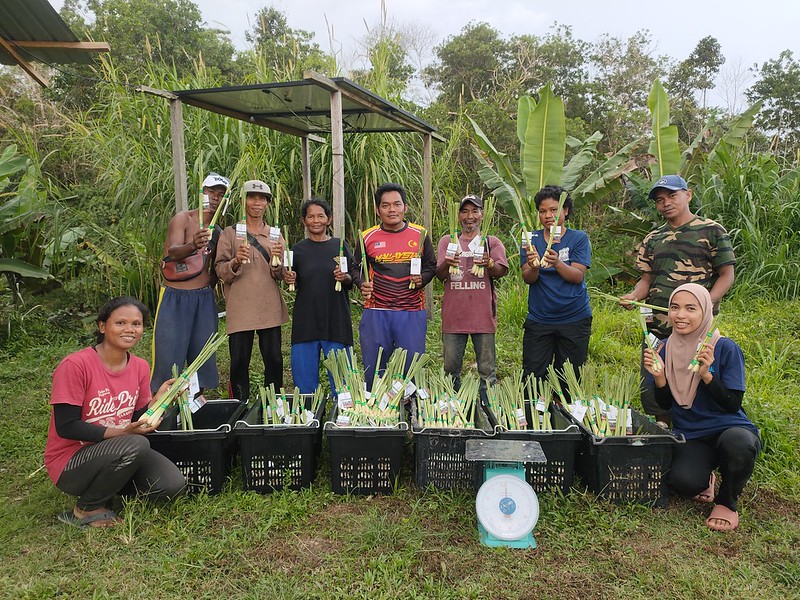
To bridge market access barriers, we set up the Kebun Amai, an Orang Asli marketplace to support the farmers to market and sell their organic produce. Through connections with wholesalers, grocers and the communities within the Pahang and Klang Valley area, we have successfully sold Orang Asli produce and handmade products in markets and events both in Pahang and in Klang Valley.
From sustainable farming through Syntropic Agroforestry to economic empowerment through Kebun Amai, we hope that these initiatives will become the stepping stones for Orang Asli families to become resilient and self-sufficient for many years to come!
Transforming Lives, One Village at a Time
When we first started working with Kg. Bukit Biru in 2019, the village had little access to basic needs and necessities. Since then, we have worked with the villagers on a variety of projects ranging from clean water, sanitation and electrification, to education, food farming and livelihood. We are incredibly proud to have had this opportunity to share every step of this transformation with the villagers of Kg. Bukit Biru.
However, the transformation of Kg. Bukit Biru is only the beginning; we are excited to continue our work with more Orang Asli villages and to transform lives, one village at a time.
Watch as we highlight our work with Kg. Bukit Biru since 2019 and how much the village has transformed into a safer, healthier, and more productive community.
If you would like to support the livelihood of Orang Asli farmers, connect with us here! You may also purchase Kebun Amai’s fresh produce and homemade products by signing up here or by messaging us on Whatsapp at 013-5230587.
Written by:
Lauren Chew






